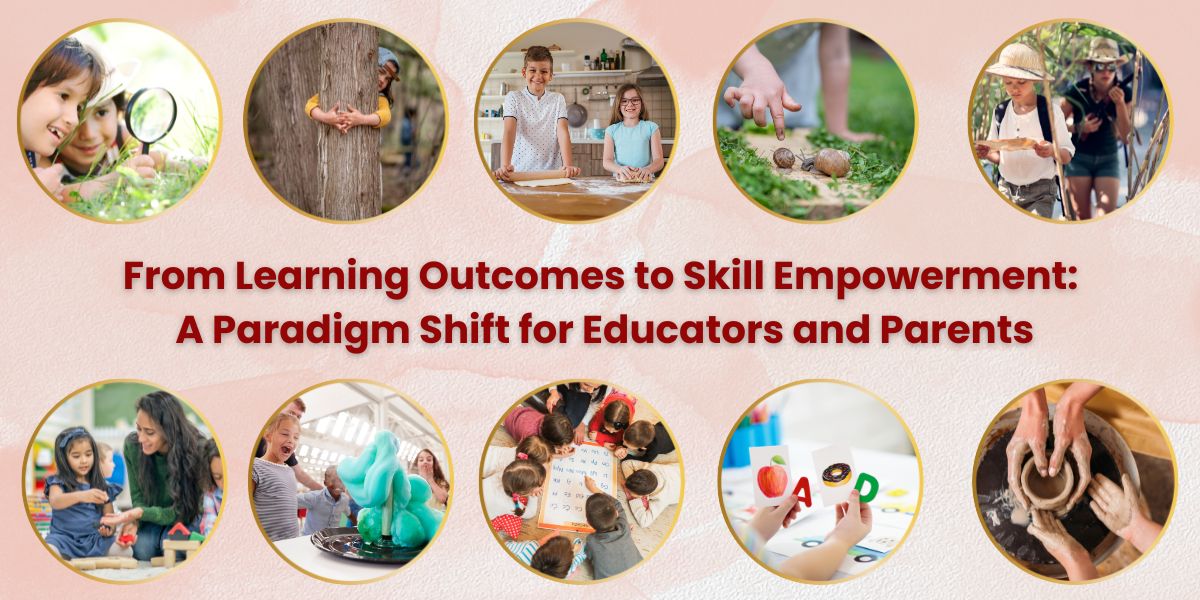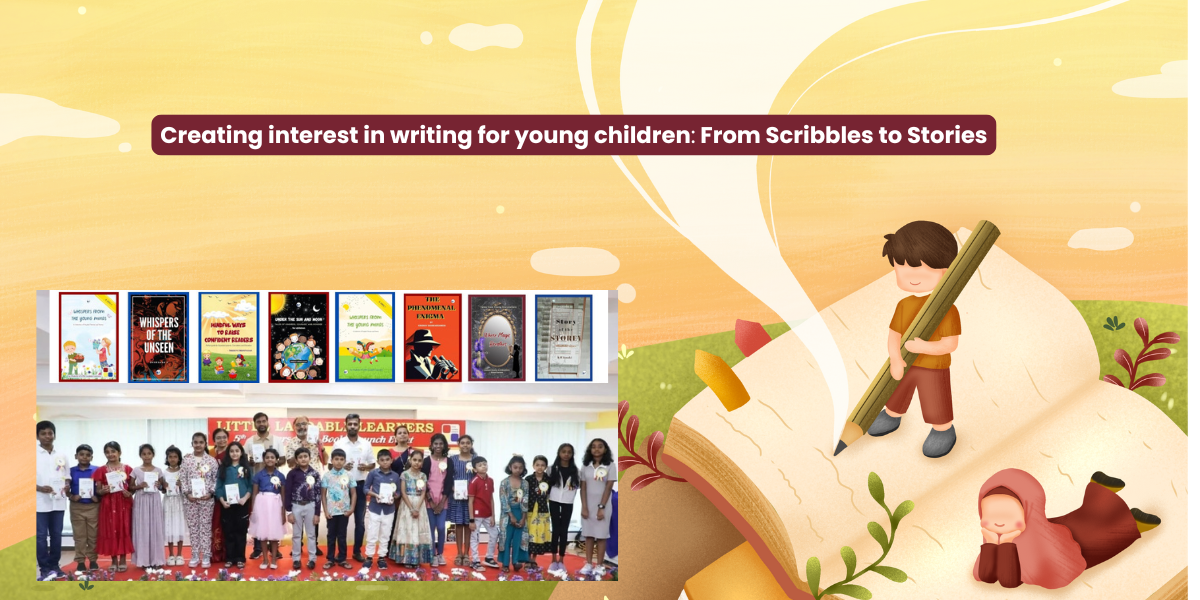
Educate to Empower
From Learning Outcomes to Skill Empowerment: A Paradigm Shift for Educators and Parents
The business of both parent and teacher is to enable and to help the child to educate himself, to develop his own intellectual, moral, aesthetic, and practical capacities and to grow freely as an organic being, not to be kneaded and pressured into form like an inert plastic material.
— Sri Aurobindo
Every educator and parent intend to empower children. However, in the process, sometimes the focus shifts solely to learning outcomes, neglecting the goal of skill development and empowerment.
For example, parents push children towards the pursuit of perfection, leading to over-instruction creating dependency. Parents interfere in every detail of their learning, providing extensive help instead of guiding them in the learning process. Aiming for good scores or results, may not necessarily lead to skill-building,
Similarly, to ensure performance, teachers set expectations and guide students in every way instead of encouraging the child to think on their feet.
This trend, observed among many educated parents and enthusiastic educators, leads children to constantly seek instructions or look for approval rather than thinking critically ending up in self-doubt and approval seeking lowering their enthusiasm and confidence level. Immediate happiness and satisfaction may result, but true empowerment remains uncertain.
Shifting our paradigm towards skill-building is necessary.
Though educators face constraints like limited time and a vast curriculum, they must prioritize fostering skills in every child, irrespective of their diverse learning styles and capabilities as suggested by Lilian Katz.
Provide lots of opportunities for children’s natural curiosity to manifest itself. With very young children, our role is one of supporter and guide.
Here are some actionable suggestions for educators in the process of unfolding miracles.
- Creating a Safe Environment
Cultivate a classroom culture where mistakes are seen as a natural part of learning. Some children always laugh at their classmates when they make mistakes. Encourage peers to support and not ridicule.
- Inquiry-Based Learning
Design learning experiences that will promote critical thinking, problem-solving and inquiry. Encourage students to ask probing questions that would encourage students to think on their feet.
- Play Based Learning
Hands-on experiments, engaging activities, group projects and role-play will enable students to better understand and learn creatively. Flip learning methods can be used to engage children in the learning and skill-building process.
- Provide Constructive Feedback
Offer specific and constructive feedback in a sandwich model. Be clear on how to work further to improve.
- Interdisciplinary Lessons
Collaborate with the teachers to bring in interesting projects and learning experiences to promote understanding of a concept through various subjects.
- Collaborate with Parents
Engage parents with discussions on the importance of making mistakes and how to guide them with constructive feedback.
Additionally, the most important catalyst in the process of empowerment is the parent. Parents need to understand that skill-building is more important than securing good grades and rankings.
Following are a few suggestions for Parents to empower their children.
- Embrace Mistakes
There is no better time to teach a child other than when a child makes a mistake. Ensure that you praise the effort the child puts in give suggestions and guide them to avoid mistakes.
- Provide Independence
Allow children to do the simple tasks by themselves. Give them small responsibilities that they can handle and allow them to learn from doing. It is important for the children to feel pride in the small tasks that they do all by themselves and how proud you feel about them.
- Encourage Play
In a conducive environment let them play informally without any instruction. Let them explore around and figure out their way of playing.
- Focus on the process
Though successful results are what we desire, it is the process of achieving success that will let one learn and acquire skills. Appreciate the process, efforts and how they have developed from one point to another.
With these activities, Educators and parents can create a conducive environment for the learners by equipping the skills required. Educators and parents together can truly empower children by nurturing the star within.



